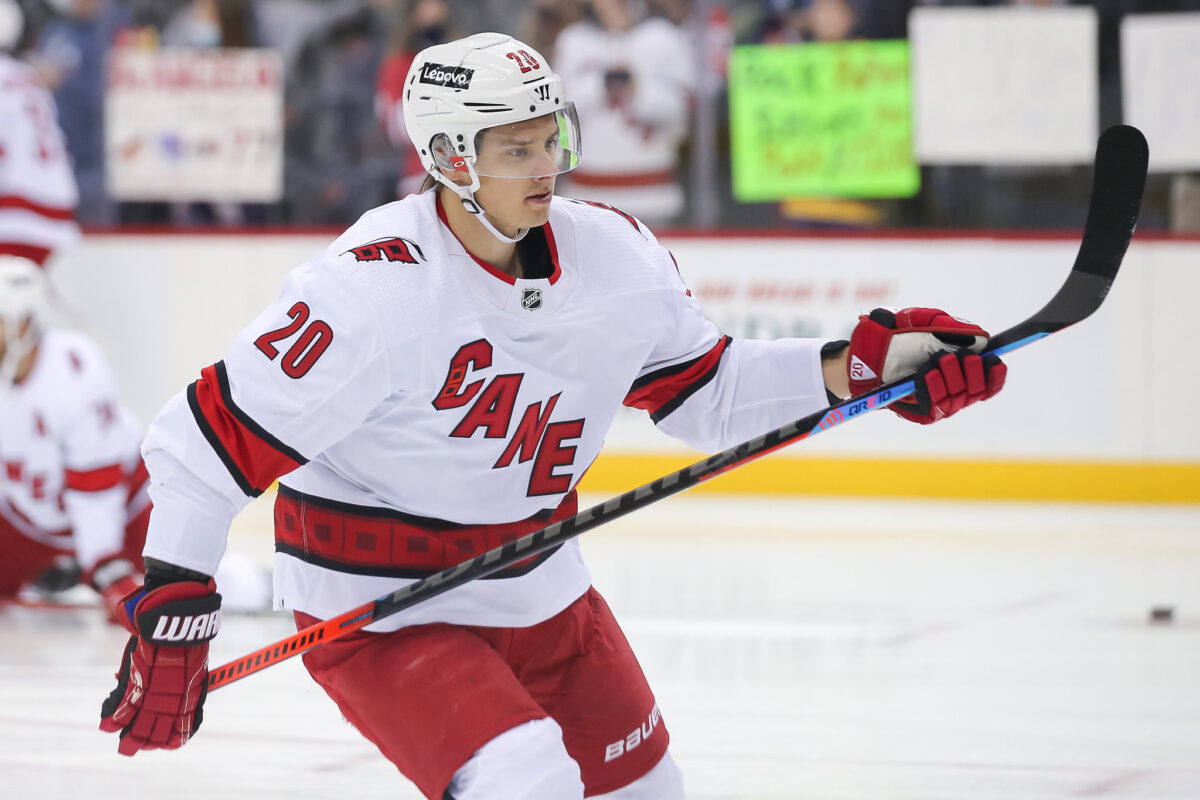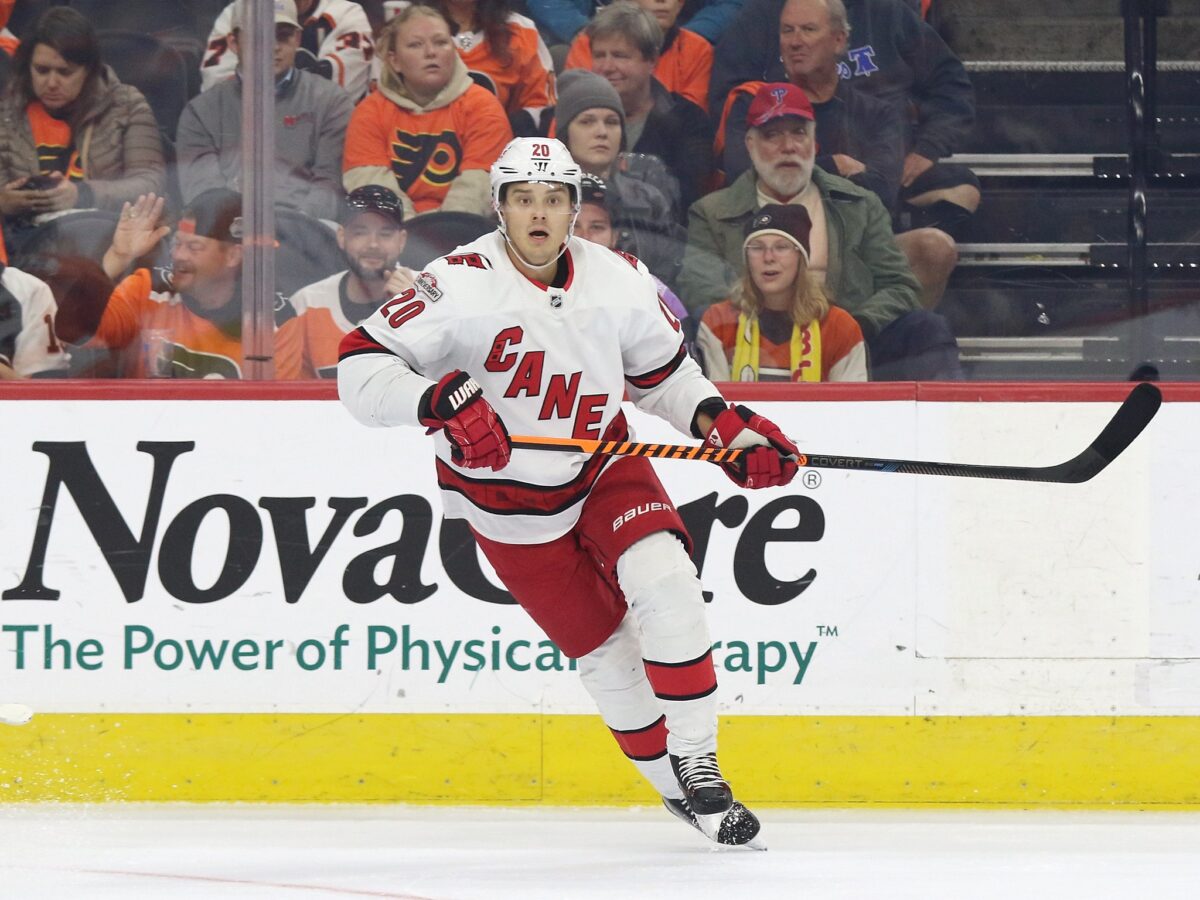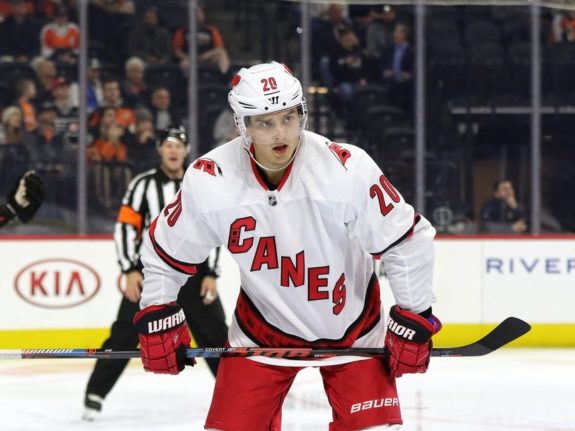During the summer of 2019, the Carolina Hurricanes saw their star center receive an offer sheet from the Montreal Canadiens. Now, this offer sheet for Sebastian Aho had one motive, but this was not to anger the new owner of the Hurricanes, Tom Dundon. This offer sheet from Marc Bergevin and the Montreal Canadiens was to try and get Aho out of Raleigh and into Quebec. However, the perfect storm seemed to form around this for the Hurricanes to get the ideal bonuses.
Montreal’s Offer to Sebastian Aho
Aho’s offer sheet had one idea designed to try and put the Hurricanes off of matching it. Bergevin and the Canadiens’ front office decided to completely load the contract with signing bonuses to try and get the new Hurricanes ownership to cheap out and walk away, leaving Aho to become a Canadien. This may seem like a minor difference in the structure of the contract, but previous ownership in Carolina had not been so willing to spend the money on its top-end talents.
With the Canadiens assuming that new ownership would go down the same route, it seemed like a safe bet for the front office in Quebec. With Aho set to receive $21.17 million in 12 months just for signing the deal, this was an intentional challenge to the Hurricanes’ new ownership. It is important to note that the entire contract mostly paid Aho through a large signing bonus yearly. His base salary was the league minimum, which is why the average annual value of this contract changed when the league minimum did.

Guaranteed money, like signing bonuses, was necessary because the collective bargaining agreement between the NHL and the NHL Players Association (NHLPA) was set to expire in the coming years. With the lockout threat, players feared reduced salaries and signing bonuses prevented that, so everyone wanted it. The Canadiens knew that and were trying to force the Hurricanes to pay more than they would be more comfortable doing so with a different player.
In the end, it was an easy decision for the Hurricanes. They would have gotten a first, second, and third-round pick from Montreal as compensation for the member of the Canes that is rapidly climbing the all-time franchise record lists. Matching the offer sheet was something that the Hurricanes decided to do the day after it was signed despite having a seven-day window to come up with a decision. Dundon proved that he was not someone to mess with in this regard.
A Perfect Storm Starts to Form
Having matched the offer sheet, the Hurricanes set their sights on the 2019-20 season. With a deep playoff run the year before, the organization looked to be on its way up in terms of prospects in the hockey world. However, 2020 was the year everything took a step back after most of the world shut down due to the COVID-19 pandemic. Hockey took a back seat to all the real-world stuff we try to avoid when delving into sports.
As a result of the pandemic, the league was forced to play games in empty arenas during an abbreviated schedule. For a gate-driven league like the NHL, this was a significant problem. Believe me when I say that this is very oversimplified. The league’s revenue was down, and the escrow held out of the players’ salaries was getting paid back to the owners so the NHL could stay above water.

The situation started favoring the Hurricanes when the NHLPA and the league announced a Memorandum of Understanding during the height of the pandemic in July 2020. This document meant that the salary cap would increase by $1 million a year while the players paid escrow to the owners, which they would do for the next three years. It also kept the salary cap down, meaning the players’ maximum possible contract was lower than expected.
How It All Affected the Hurricanes
The Hurricanes recently extended Aho after the Finnish forward signed a new eight-year contract worth $9.75 million a year. This would take up 11.6 percent of the salary cap hit if it was to be implemented today. This becomes such a great deal for the Hurricanes because they will be paying this amount so long that the percentage of the salary cap it takes up will come down. If the cap increases to $90 million, it suddenly takes up less than 11 percent. These minor details make this deal an excellent one for the Hurricanes.
Related: Hurricanes’ Stanley Cup Hopes Could Be Derailed By 3 Teams
It is unfair to say that the Hurricanes have Bergevin entirely to thank for this. In normal circumstances, this deal may not have been so good. However, the events occurring since the Canadiens tendered an offer sheet to Aho have left the Hurricanes in a position to reap all of the rewards of this contract. The main attribute is signing a player of this quality to a deal that sees the player make what some would consider below-market value for someone of his caliber.

However, if this deal had been done in three years, when Aho was coming off an eight-year deal straight off his entry-level contract, it would not look the same because the salary cap may have increased to something closer to $90 million. It also needed the cap to stop rising due to an event that happened once in a century or so. It had to be the right combination of these situations. To get 13 years’ worth of a player that will challenge the organization’s all-time franchise records at a cap hit that barely changed and will end up significantly below par for the market value of someone that matches his skill set required everything to go right. It was the Canadiens that set that in motion.
